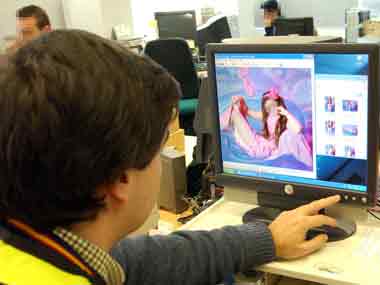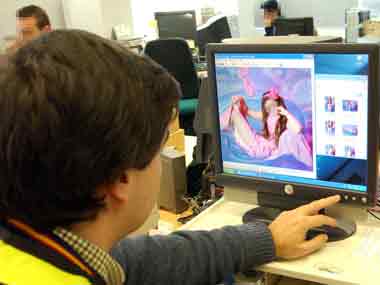Google’s plans to display warnings above search results for 13,000 terms which have been linked to explicit child abuse terms may be well intentioned, but that doesn’t mean that everyone is happy about it. The move is in fact being criticised by online rights campaigners, as well as some child rights activists. The rights campaigners have said that the measures will not be very effective in protecting children, and would in fact be more about preventing damage to the companies’ reputations (Microsoft has said it will follow suit on its Bing search engine, and on Yahoo searches powered by Bing). [caption id=“attachment_1237355” align=“alignleft” width=“380”]  Representational image. Reuters[/caption] “Most child abuse images are circulated in private networks, or are sold by criminal gangs,” said ORG Executive Director Jim Killock in a blog post Sunday, reported on PCWorld.com. “Banning search terms seems unlikely to combat the serious activity, which is independent of search engines.” Killock also pointed out that banning search terms will just lead to people coming up with new search words to find the illegal content. “(David) Cameron invites a game of cat and mouse which is likely to have very limited impact,” he said. “The terms used may hide themselves into search terms that cannot be banned because they are innocuous.” Besides this, the ban on certain search terms will also come in the way of organisations like the Internet Watch Foundation (IWF) which try to identify child abuse images using search engines and report them to the proper authorities, Killock said. Google and Microsoft are acting after pressure was put on them by the UK government at the behest of UK Prime Minister David Cameron. The two companies cover 95 percent of the search market in the UK. The data on which terms are linked to child abuse were compiled by the UK’s Child Exploitation & Online Protection Centre (CEOP). According to the report, “the hidden internet provides a perception of anonymity for those surfing or hosting websites. Websites facilitating money laundering, drug use, trafficking and other forms of criminality proliferate across such networks with a significant and growing use by those with a sexual interest in children.” Google has also introduced other changes - as well as a new technology which allows copies of child abuse videos to be identified and removed - to control online child abuse. Jim Gamble, child protection expert pointed out that while the effort is noteworthy, the moves do not aim at the root of the problem - the people in front of the screens. Writing for ITV.com, Gamble said: “Some of these new tactics will help divert inadvertent access and perhaps delay a novice paedophile, but much of the hype in real terms will mean very little…The way to deter offenders from raping, abusing, photographing, sharing or seeking out images of child abuse is to line child abusers up, in the dock of a court room. One of the main problems is that people can see that is not happening.”
Google’s plans to display warnings above search results for the 13,000 terms which have been linked to explicit child abuse terms doesn’t have everyone happy - the move is being criticised by online rights campaigners, as well as some child rights activists
Advertisement
End of Article


)

)
)
)
)
)
)
)
)



